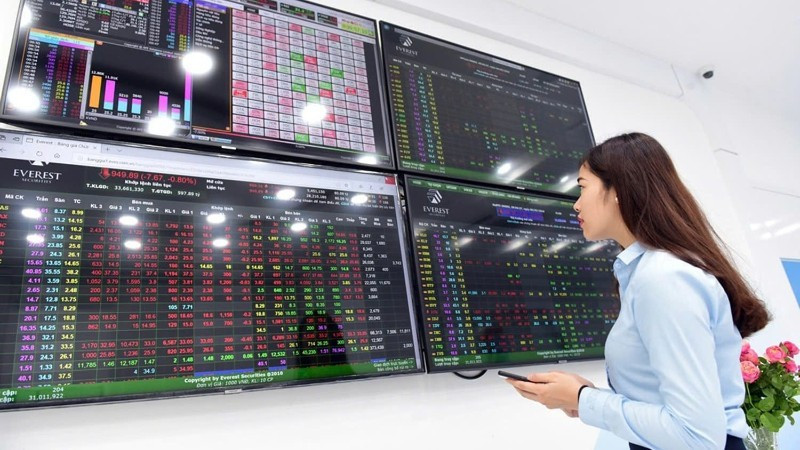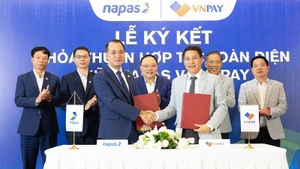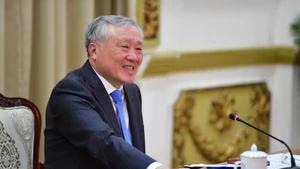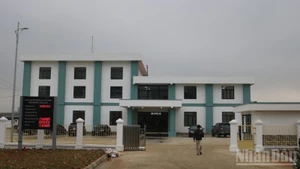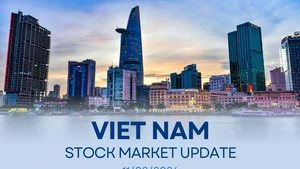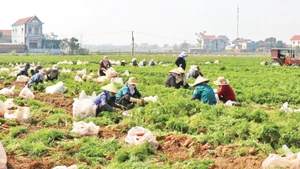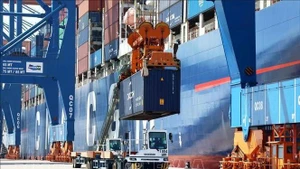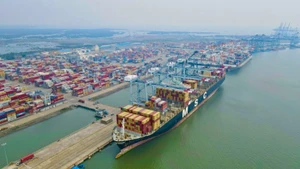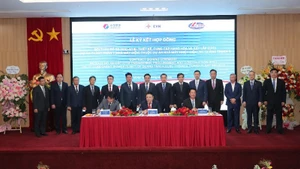A major turning point
On October 8, 2025, FTSE Russell confirmed that the Vietnamese stock market had met all official criteria for reclassification from frontier market to secondary emerging market. This is an important milestone, recognising Viet Nam’s comprehensive reform efforts to implement the Party and state’s policy on developing a transparent, modern, and efficient securities market under the highest international standards.
This turning point also opens a new stage of development for the Vietnamese stock market with deeper and more widen reform requirement, aiming to long-term goals in the future. The State Securities Commission will continue to cooperate closely with FTSE Russell to ensure that the official transition process follows the planned roadmap while further improving the legal framework, modernising and digitising infrastructure, and fostering deeper integration into global financial markets.
Following the announcement on October 8, 2025, FTSE Russell will continue to closely monitor market developments and encourage stakeholder feedback before the mid-review in March 2026 to ensure that the official upgrade will take place as planned in September 2026.
Viet Nam has prepared for this upgrade since 2018. When it was first placed on FTSE Russell’s watchlist for upgrade, the Vietnamese stock market failed to meet two criteria: “payment cycle” and "method-cost of failed transactions processing”. In 2024, the management agency of the Vietnamese stock market launched a pre-funding-free trading model, officially removing the pre-deposit requirement for foreign institutional investors and establishing official processes for handling failed transactions.
The FTSE Russell Index Governance Board (IGB) also considered ideas of the Market Classification Advisory Committee concerning foreign investors’ limitations trading in Viet Nam. According to IGB, although these limitations are not mandatory criteria, improving foreign investors’ access is a crucial condition for successful upgradation.
Therefore, this opinion is still considered and acknowledged the current efforts of the Vietnamese securities market management agency in building a model that allows foreign institutional investors to trade through partners who are global securities companies. This effort is expected to bring the Vietnamese market closer to international standards, minimise counterparty risks, and increase investor’s confidence through establishing relationships with reputable intermediaries.
Opportunities to attract more foreign capital
Receiving positive information from FTSE Russell, securities companies simultaneously made optimistic forecasts about the development prospects of the Vietnamese stock market in the coming period.
According to Tran Hoang Son, Market Strategy Director of VPBank Securities Joint Stock Company (VPBankS), the upgrade will help Viet Nam integrate deeper into the global investment system. This would help potentially attract strong foreign investment capital flows from both passive and active funds.
VPBankS estimates that if Viet Nam accounts for about 0.5% of the FTSE Emerging Markets Index, the total foreign capital flow could soon reach 3–7 billion USD.
The appearance of new capital flows is expected to boost liquidity, with average daily trading value rising to around USD 2–3 billion per trading session from the current level of 860 million USD.
More importantly, the upgrade not only has financial significance but also reinforce Viet Nam’s economic position and image on international arena. As foreign capital flow enters the market, listed companies will be encouraged to enhance transparency of financial report, standardise governance, expand market capitalisation scale, and accelerate initial public offerings (IPOs). If taking full advantages, the stock market could become a key channel to mobilise capital for the economy, contributing to implementing the GDP growth goal of above 8% in 2025, and toward double-digit growth in the following years.
Nguyen Duy Hung, Chairman of SSI Securities Corporation, remarked that the upgrade is only the beginning step.
“The challenge ahead is to compete equally in the FTSE and aim for the next step, achieving emerging-market status under MSCI (Morgan Stanley Capital International),” he said.
Meanwhile, HSBC Global Research forecasted that potential foreign capital flow could reach 3.4–10.4 billion USD after the Vietnamese stock market is upgraded.
According to the Ministry of Finance, upgrading is one of many development goals to improve the efficiency of the stock market, making it an important capital mobilisation channel for the economy, supporting the development of the capital market, facilitating capital mobilisation for businesses, and promoting the development of the economy.
Deputy Minister of Finance Nguyen Duc Chi affirmed that the reclassification process must be maintained continuously and for the long-term, with the ultimate goal of developing a stable and transparent securities market that effectively supports the economy, enterprises, and medium- to long-term capital market.
